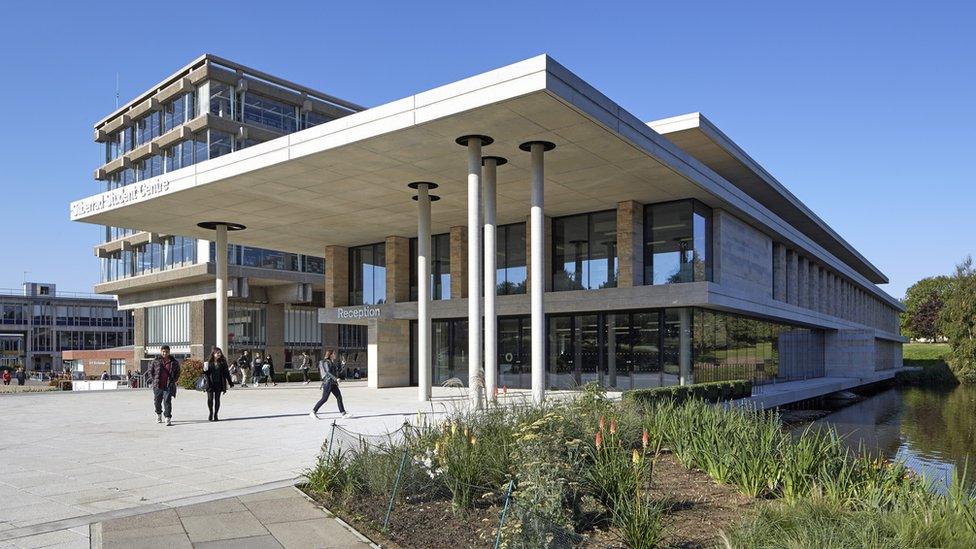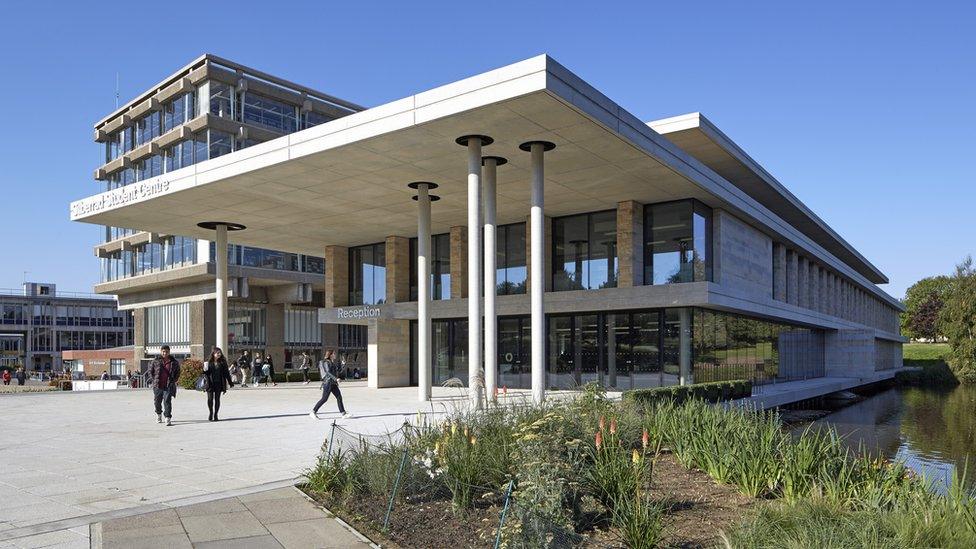Sarah Perry: New university chancellor hits out at government degree criticism
- Published

The University of Essex has appointed Sarah Perry as its new chancellor
An author and new chancellor of the University of Essex has hit out at the government's criticism of some degrees.
The government wants to limit numbers on courses that do not have "good outcomes", such as those where a lower proportion of students go on to professional jobs.
Dr Sarah Perry said the "value of the outcome of a university education cannot be reduced to a salary".
The government said putting limits on such degrees could mean they improve.
Dr Perry, who wrote The Essex Serpent, Melmoth, After Me Comes the Flood and the non-fictional tome Essex Girls, was announced as the new chancellor this week.
In an interview with the BBC, it was put to her that the government said it wanted to put a cap on certain degrees that do not have "good outcomes", meaning if a graduate is not in a professional job or further education after a certain amount of time.
She responded: "Our students are not cogs in a capitalist machine, they are not units of income.
"[University education] is also about learning about the world that is large and marvellous and illuminating, learning modes of speech, patterns of empathy, history and language to set the world in context.
"It is totally reasonable for a student to want their degree to have that kind of fiscal worth but we also need to encourage them to see what that breadth of learning across all kinds of subjects can bring not just to their job but to their entire life."

Dr Perry said her main role at the university would be to give "encouragement and inspiration to the students"
The author added that "some might say it was an attack on the arts at university level".
"I think it's really significant that I'm the first Essex University chancellor from the arts background which I'm very, very excited by," she said.
Dr Perry added that her main role at the university would be to give "encouragement and inspiration to the students".
"I think I was invited to this role partly because I'm an Essex girl and that is an identity that has not been celebrated," she said.
"It's been mocked... and yet I have been fortunate enough to achieve more than I had ever imagined I would achieve.
"I also hope I can show them that working in the arts is not a barrier to inhabiting the world in a very vivid and vital and enriching way."
Earlier this week, education minister Robert Halfon told the BBC said that putting limits on underperforming degrees will mean those courses "will then improve".
"Students will be able to make informed choices," he said.
He said any limits on courses will be a matter for the regulator, the Office for Students (OfS), rather than the government.

Follow East of England news on Facebook, external, Instagram, external and Twitter, external. Got a story? Email eastofenglandnews@bbc.co.uk or WhatsApp us on 0800 169 1830
Related topics
- Published17 July 2023

- Published17 July 2023

- Published11 December 2022
